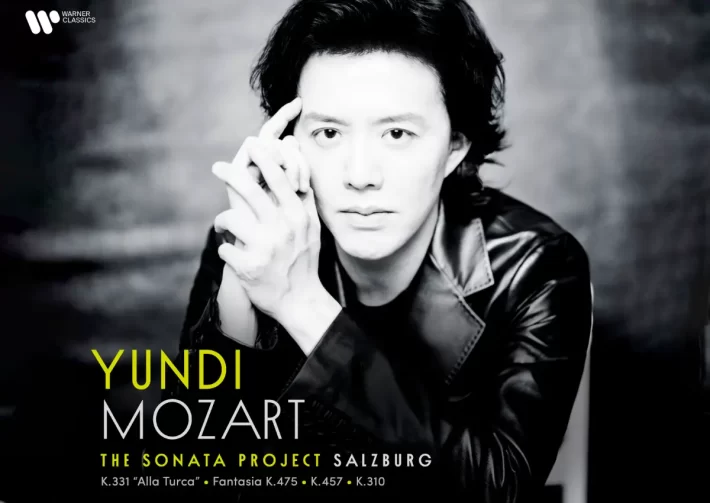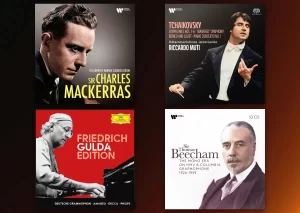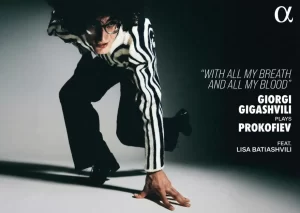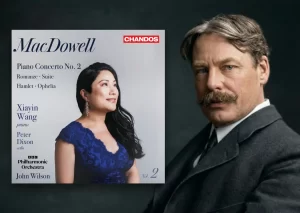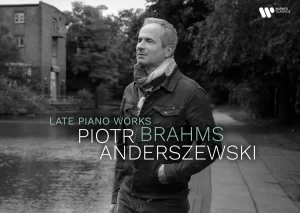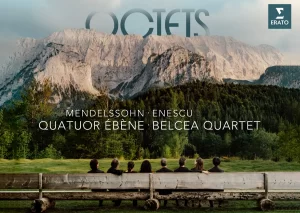It’s been nearly five years since Yundi’s last release, where he tackled Chopin’s piano concertos as both soloist and conductor. This new album marks a shift, delving into Mozart‘s most famous sonatas as part of his ongoing Sonata Project and tour.
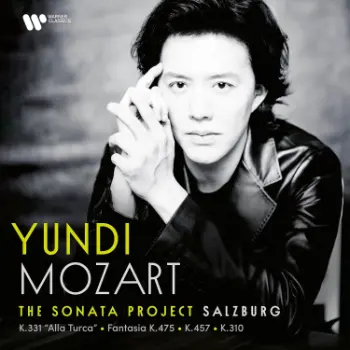
Check offers of this album on Amazon.
Yundi approaches K. 331 with dignity and elegance: it is neither hurried nor stagnant, and the right choice of tempo gives the space to appreciate each variation. The hymn-like compositional texture of the theme (track 1) comes through with sensible voicing, while the top line adds a pleasing lyricism. Variation 1 maintains a similar sort of idiomatic grace, but his clearly defined two-note phrases do well to offer a bit more animated commentary, which then continues into Variation 2. Perhaps the only fault is the minor variation (track 4), which despite its well-managed legato, feels a little too complacent.
The Menuetto, much like the previous movement, derives its lovely clarity from thoughtful phrasing, but also a general absence of pedal. Yet the overarching feeling of restraint, when listened to long enough, makes for a somewhat uniform soundscape. That’s not to say that the pianist doesn’t respond to harmonic and textural shifts, but these do pale in comparison to Mitsuko Uchida. Her opening carries a little more weight and commanding presence.
The famous Rondo (track 3) is on point with energetic staccatos and a snap to the small riffs that help outline the march’s rhythm. However, the major segments could use more room for gusto in the rolled chords and the jubilant mood. Other versions by Angela Hewitt, Murray Perahia, and Maria João Pires (even with the latter’s much slower pace), maximize the movement’s vibrant personality.
The rest of the album is dedicated to minor-key works, starting off with the A Minor Sonata, k.310. The disquietude and drama in Robert Levin’s recent recording (on Mozart’s own instrument/ECM) are somewhat muted in Yundi’s performance. In the first movement Allegro Maestoso (track 10), the very fabric of the music calls for urgency, yet even with louder dynamics, Yundi’s approach feels too polite. The same goes for the final Presto, where Yundi’s delicate and carefully crafter phrases might not be the most effective vehicle.
The pianist’s precise fingeworks is front and center in the opening movement of the C minor Sonata (K. 457, track 14) but here, he could play more into its symphonic character with a weightier sound. The Adagio (track 15) is beautiful; Yundi brings out the melody like a graceful, expressive singer, and the tempo allows for peaceful reflection.
Recorded at Salzburg’s Siftung Mozarteum, the recording captures the concert hall’s open acoustics; this in turn gives Yundi’s playing a sense of airiness very appropriate to the music. While the liner notes keep the description of each sonata brief, the foreword makes an interesting connection to Chopin, arguably the pianist’s expertise.
While Yundi’s technical skill is undeniable, his polished approach across all the sonatas comes at a cost. The music sounds beautiful, but it lacks the individuality that makes each sonata unique. Despite this, the recording makes for a pleasing listen, although preferred reference recordings remain.

Mozart Piano Sonatas – Recommended Comparisons
Levin | Uchida | Pires | Hewitt

Check offers of this album on Amazon.
Album Details |
|
|---|---|
| Album name | Mozart – The Sonata Project, Salzburg |
| Artist | Yundi – Piano |
| Catalogue No. | 5419793485 |
| Label: | Warner Classics |
| Work | Mozart – Piano Sonatas K. 310, 331, 457. Fantasie K. 475 |
| Amazon link | Buy here |
| Apple Music link | Stream here |
Included with an Apple Music subscription:
Latest Classical Music Posts
Read more classical music reviews or visit The Classic Review Amazon store
Follow Us and Comment:
[social_icons_group id=”964″]
[wd_hustle id=”HustlePostEmbed” type=”embedded”]

